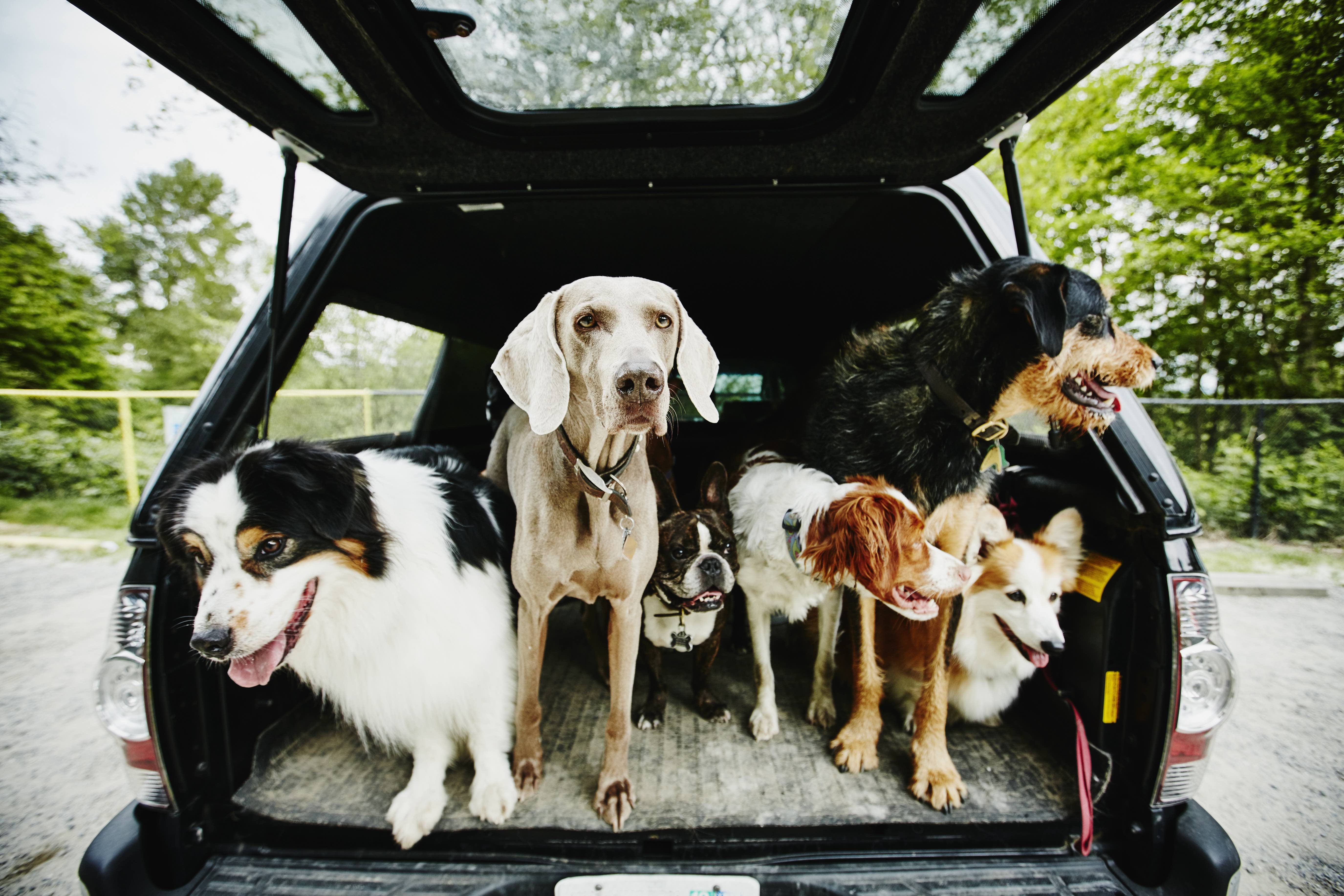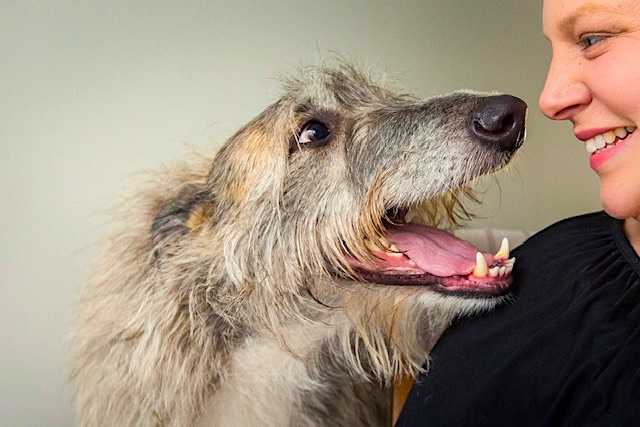
Sciences & Technology
Why do small dogs live longer than big dogs?

A new TV series explores the journey of dogs, but science is giving us new insights into how we can help our canine friends thrive
Published 25 March 2022
Over the last twenty years, there has been a global explosion of science focused on our best four-legged mates – dogs. Surprisingly, some aspects of our relationship with canines (like exactly how they first became domesticated) are still being uncovered.
We do know that for tens of thousands of years, we have been sharing our lives with dogs. So how come we’re still working out how to be their best friend?

I’ve been a part of ABC TV’s new series A Dog’s World with Tony Armstrong, which not only explores the evolutionary journey of dogs and their amazing senses but also how science is helping to keep them happy and healthy.
Exploring what dogs need to be happy and how people think about dogs is something we specialise in at the University of Melbourne’s Animal Welfare Science Centre. Unlike a lot of other canine research that focuses on how dogs can help us, we work to understand how we can help dogs.
Our research has shown that we perceive the welfare of dogs to vary from very low to very high based on where we find them. For example, people consider that racing greyhounds have low levels of welfare and detection dogs experience high welfare.

Sciences & Technology
Why do small dogs live longer than big dogs?
That’s interesting as these dogs all spend a lot of their time living in kennel facilities where we control how they access and interact with their environment, other dogs and people.
Many people perceive wild dogs as having very low welfare, but they could be thought of as having more environmental, behavioural and social freedoms.
One of the most fascinating findings was that nearly all the people surveyed who lived with a canine friend thought their own dog experienced the highest level of welfare.
This could mean that only the very best 2,146 dog guardians responded to our survey, or it might be that people experience a positive illusory bias – or better-than-average effect – when assessing their own skills at providing for their dogs’ needs and desires.
Interestingly, we see a similar effect when people self-assess their parenting or driving skills.
Other research from Italy suggests people often miss some of our dogs’ more subtle behavioural cues when they aren’t enjoying themselves. This includes things like looking away or moving further from us, their ears drawing back, licking their nose and yawning.
Together, these research findings mean we are probably overlooking opportunities where we can help our dogs be happier.

Sciences & Technology
What are we doing to our dogs?
By giving our dogs more choices in their lives, we offer them more control and agency, which can improve animal welfare. This can be as simple as letting them choose when to interact with us.
Research shows that when dogs choose to come to us rather than imposing our contact on them, our interactions will last longer and be more positive.
Next time you call your dog over, you can do an easy ‘consent’ test where you start patting them, but then stop – and see how they respond. If they choose to walk away, let them.
But they’ll probably look at you and lean in to tell you that they want you to continue. You can also use this kind of check-in to see if they prefer ear rubs, shoulder strokes or chin scritches.

A lot of dogs don’t enjoy hugs or being dressed up, which is important for children in dog-loving households to know. Teaching kids basic doggo body language can also mean they recognise when dogs are not enjoying their attention before needing to ‘raise their volume’ to get the message across – growling or even biting.
By paying more attention to the cues our dogs give us, we can better consider what they need and give them what they want.
Understanding the needs of dogs so they can be happier is something the team at the Animal Welfare Science Centre think about a lot.

Sciences & Technology
Does a wet nose mean a healthy dog?
Recently, some colleagues and I found that prioritising dog welfare is going to be fundamental to the sustainability of how we interact with dogs. If we can’t assure good welfare for dogs, it’s unlikely that modern society will tolerate it.
This is important for industries that rely on dogs to do work or entertain us.
There have been several examples in recent years of impact to industries reliant on animals when their practices are shown to be out of sync with community expectations. Recent recognition of the sentience of animals, shows we understand that dogs experience joy and pleasure as well as pain and fear.
We now know that dogs’ emotional experiences are as important to their wellbeing as their physical health. This highlights our moral obligation to ensure our canine counterparts are living good lives.

Our future research hopes to give us new insights into what dogs need to thrive and extend our understanding of how people think about dogs.
With good science communication, we can use new scientific information to contribute to mutually sustainable partnerships between dogs and humans.
And you can start by giving the one on your couch a tasty treat from me.
Banner: Getty Images